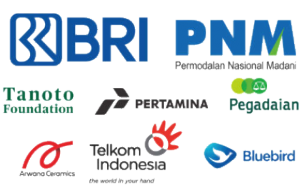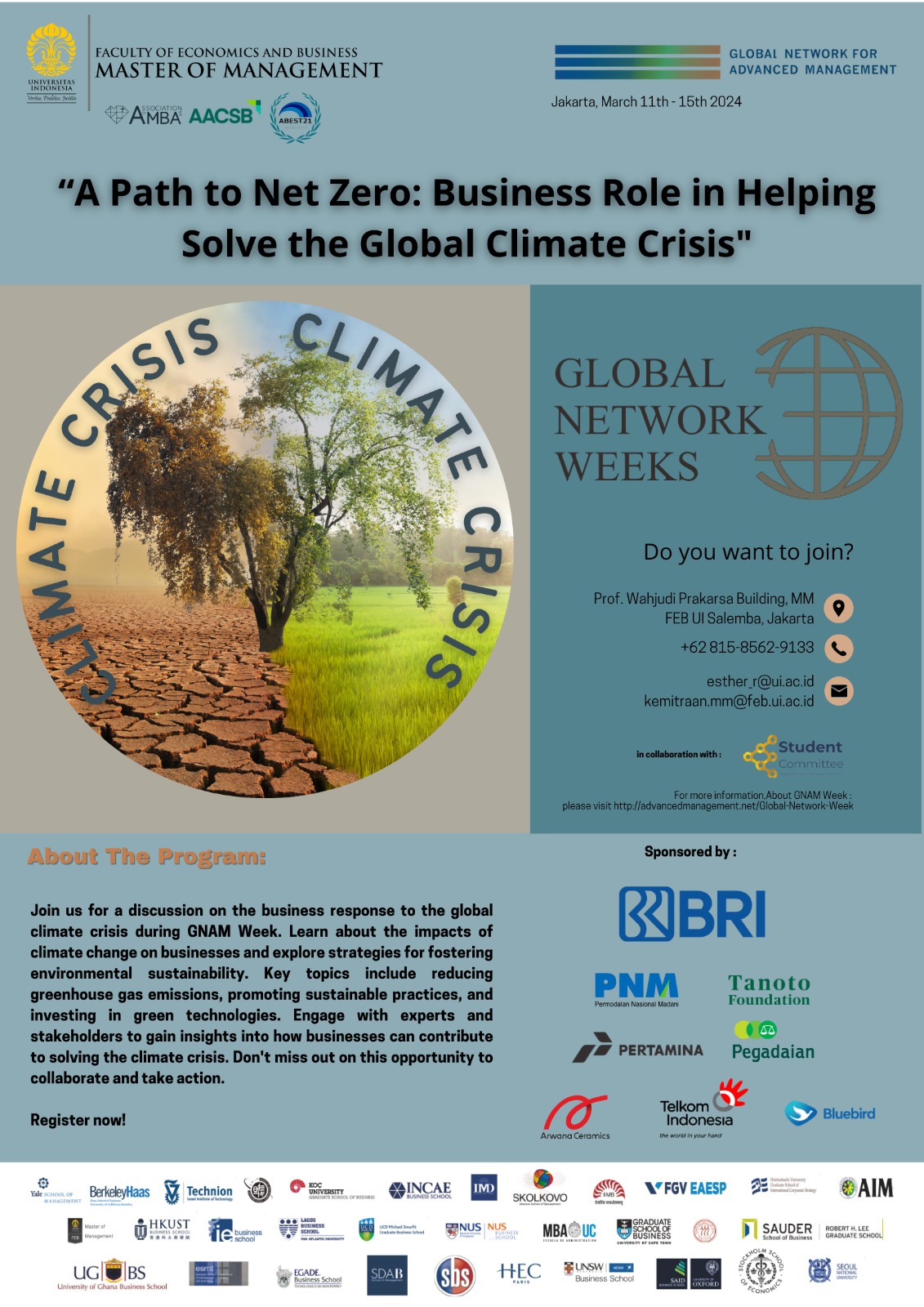GNAM Week Day 3,
Jakarta, 13 Maret 2024
1st Session
Day 3 was opened with a presentation by Agus Tjahajana Wirakusumah, the Special Advisor to the Minister of Energy of Mineral Resources, with the topic Ethical and Sustainable Energy Supply Chain in Supporting SMEs. This session also discussed specific topics about “Through Vehicle Electrification and Waste to Energy Utilizations Program”.
Indonesia is making a strong push towards a cleaner future. The number of electric vehicles (EVs) on the road is increasing rapidly, with a massive 189% increase in 2023 compared to the previous year. This surge is being fueled by the NEV Population Acceleration Program, which has not only driven EV adoption but also resulted in significant environmental and economic benefits. The program has helped reduce CO2 emissions by a staggering 247,000 tons annually, slashed imported oil consumption by over 300 million liters, and led to cost savings of 84.7 million USD in oil subsidies. Furthermore, the government is committed to ensuring the safety and quality of EVs by designing a Standard Conversion System for transforming gasoline-powered motorcycles into electric ones. This system is backed by a robust IT infrastructure for reliable reporting and monitoring. Looking beyond EVs, Indonesia has plans to implement waste-to-energy technology on a massive scale starting in 2025. This initiative promises to improve public health, significantly reduce waste volume, and harness waste as a valuable energy source.
2nd Session
The next session discussed “Energy Transition in Indonesia“, which was delivered by Yunus Saefulhak, the Head of The Energy Policy Facilitation Bureau Secretariat General of the National Energy Council.
The energy sector will be a significant contributor to carbon emissions after the forestry sector in Indonesia, and the country needs to enhance its national energy policy to achieve net-zero emissions by 2060. The policy should focus on enhancing energy resilience, maintaining energy security, and promoting energy efficiency. The energy sector is projected to be the biggest contributor to CO2 emissions after forestry in 2030. To overcome these challenges, the government should implement a comprehensive energy policy prioritizing renewable energy sources. This policy should aim for a significant shift towards renewables, reaching 23% of the primary energy mix by 2025 and 31% by 2050, while minimizing dependence on fossil fuels. Additionally, optimizing energy provision in terms of cost and carbon footprint is crucial. This can be achieved by developing smart energy systems, promoting energy efficiency programs, and diversifying energy sources. Ultimately, the policy should ensure sufficient energy to meet the growing demand necessary to achieve the Human Development Index target and propel Indonesia towards becoming a developed nation by 2045. This energy transition requires not only a shift in regulations and policies but also an increase in locally sourced energy and greater public and private participation in the electricity sector.
3rd Session
Topic : IDX Carbon: Creating a Transparent Liquid and Efficient Carbon Trading Infrastructure to Help Fight The Climate Crisis
Specific Topic : Indonesia’s Carbon Exchange Mechanisms & Standardization
Speaker : Lufaldy Ernanda (Direktur Pengawasan Keuangan Derivatif dan Bursa Karbon OJK RI).
Moderator : Prof. Dr. Irwan Adi Ekaputra
Indonesia is establishing a robust regulatory framework for its carbon exchange market. This framework includes Law No. 16 of 2016 and Minister of Environment and Forestry Regulation No. 21/2022, which provide the legal foundation for the exchange’s operation. To ensure transparency and stability, the Indonesian Financial Services Authority (OJK) regulates the secondary market trading of carbon units within the exchange. These units are classified as securities, subjecting them to OJK’s oversight, similar to stock exchange transactions. Operating a carbon exchange requires a business license from OJK, a minimum paid-up capital of IDR 100 billion, and adherence to OJK’s regulations. The establishment process involves key milestones, such as signing a Memorandum of Understanding (MOU) with the Ministry of Environment and Forestry (KLHK) and eventually launching the exchange itself. OJK’s supervision extends beyond just the exchange operator. It encompasses market infrastructure, users, transactions, governance, risk management, consumer protection, and all parties, products, and activities related to carbon trading within the exchange. This comprehensive approach aims to create a secure and well-functioning carbon market in Indonesia.
4th Session
Topic : Safeguarding the Next Generation of Green Businesses by Nurturing Biodiversity
Speaker : Prof. Jatna Supriatna, Ph.D.
A Professor, Department of Biology Faculty of Mathematics and Science (Conservation Biology)
Moderator : Dr. Yasmine Nasution
The role of biodiversity is crucial because it ensures ecosystem stability, and resilience to environmental changes, and provides various ecosystem services like pollination, nutrient cycling, and climate regulation. It also offers potential for new medicines, and food sources, and contributes to cultural and recreational values. Overall, it’s essential for the health and well-being of both ecosystems and humans.
Biodiversity and climate change are intricately linked, with each influencing and exacerbating the challenges faced by the other. As biodiversity declines due to habitat loss, overexploitation, and other human activities, ecosystems become less resilient to the impacts of climate change.
Climate change impacts fish in coastal and ocean areas by altering water temperature, acidity, and oxygen levels, disrupting their habitats and migration patterns, affecting breeding and feeding grounds, and leading to shifts in species composition and distribution. This can threaten fisheries, food security, and livelihoods dependent on marine resources.
Alongside that, climate change further accelerates biodiversity loss. The biodiversity crisis in Indonesia contributes to the dilution effect by reducing the diversity of species in ecosystems. This decreases the ability of ecosystems to effectively buffer against diseases and invasive species, leading to increased vulnerability and potentially amplifying ecological disruptions.
5th Session
Topic : Banks and Financial Institutions’ Role in Building a Sustainable financial industry
Speaker : 1. Ahmad Solichin Lutfianto
Director of Compliance PT Bank Rakyat Indonesia (Persero) Tbk
- Yosephine Ajeng Sekar Putih
Division Head ESG PT Bank Rakyat Indonesia (Persero) Tbk
Moderator : Yeshika Alversia, S.E., M.Sc
Today, banks should put more emphasis on sustainability because it mitigates financial risks, ensures regulatory compliance, enhances reputation, boosts financial performance, meets customer demand, and improves access to capital.
In banking, incorporating sustainability is equivalent to applying Environmental, Social, and Governance (ESG) principles. It means integrating sustainability practices across operations and decision-making processes. Integrating ESG principles into banking operations contributes to a more sustainable and responsible financial system.
The implementation of ESG principles at BRI has become part of the company’s strategy towards sustainability and is BRI’s commitment to making positive contributions to society and the environment. As a form of implementing sustainability governance, BRI has formed an ESG Committee in 2021, which is a forum for the board of directors to monitor and evaluate ESG implementation at BRI.
In the banking industry, choosing between profitability and sustainability is a false dichotomy. Integrating sustainability practices into business operations can enhance profitability in the long term. Ultimately, integrating sustainability into business strategies is not only ethical but also smart from a financial perspective. By aligning profitability with sustainability, companies can create long-term value for shareholders while contributing to a more sustainable future.
Sponsored by:


